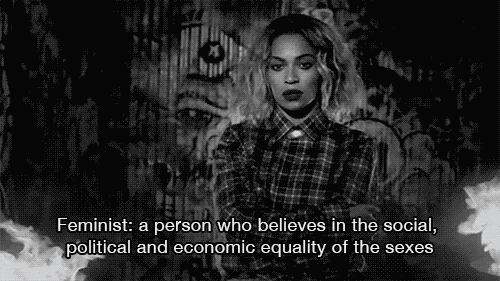The Risk of Being a Black Woman with a Voice

Jemele Hill was suspended from work yesterday for being a thoughtful Black woman with a voice. This suspension came just a few weeks after the White House said that her tweets were a “fireable offense.” Jemele’s experience is very public but it is not isolated. The truth is that Black women and girls are far too often punished because they do not meet pre-conceived ideas about what it means to be a woman, which are often modeled after white femininity.
This country is way overdue for a serious conversation about what it means to be a Black woman or a Black girl with a voice.
The obstacles for Black women and girls are very well documented. The high unemployment rate for Black women tells us that sometimes it is even harder for Black women to get a job. The large wage gap tells us that too many Black women go to work every day just to be undervalued and underpaid. As a Black woman, Jemele’s experience is personal to me. And it’s a reminder that those Black women who are able to find success are still subject to the unspoken rules of how Black women are supposed to act, speak, and behave at work and at school. The way schools disproportionately suspend Black girls tells us that the silencing of Black women and girls begins early.
When I heard about the first time Jemele was singled out, I instantly thought about the 368,033 Black girls who were suspended from school during the 2013-14 school year. I have spent the last few years researching and learning about disproportionate discipline. What I have found is that many Black girls are sent out of the classroom for the same very reason Jemele was sent out of her workplace—because they had a voice, spoke their truth, and did those things while being both Black and female. Black girls are more likely than any other group of girls to see themselves as leaders. However, in the school setting, the qualities that many of us would consider leadership skills are mislabeled as “defiance” or “talking back.” Being assertive, loud, or having an opinion and voice should not mean girls forfeit their right to learn.
As a woman, who has the privilege of working at an organization committed to breaking down barriers for women and girls, I know that there is nothing more important than letting women and girls speak their truth. And as a Black woman and a former teacher, I know firsthand how important it is to tell Black girls that they have a voice, and that their thoughts and opinions are valued.
In a recent interview Jemele talked about her social media presence and said it wasn’t about politics but about what is happening in our country right now, “I do tweet more about social issues, which I consider to be issues of morality. Racism isn’t politics. Racism is an issue of right and wrong. Tweeting about significant issues that impact marginalized people isn’t politics. That’s right and wrong.” The treatment of Black women and girls is a matter of right and wrong. In honor of the risk Jemele took talk about important social issues with your friends and family members, celebrate Black women and girls today in schools and in the workplace. Remind them that their voice is important and that they should be heard.




